Top 5 Benefits of Using a Pilot Beer Brewing System for Small Breweries
For small breweries striving to stand out in a competitive market, scaling recipes, experimenting with unique flavors, and managing production costs are crucial for sustainable growth. However, testing new recipes or ingredients on a full-scale system can be costly and risky, particularly if the final product does not meet quality or flavor expectations. This is where the Pilot Beer Brewing System becomes an invaluable tool.
A pilot brewing system allows small breweries to innovate by creating smaller, more manageable test batches. Brewers can experiment with new ingredients, refine recipes, and make necessary adjustments without the financial burden of large-scale production failures. In addition, pilot systems help brewers maintain consistent quality, test seasonal and limited-edition batches, and provide an efficient platform for training new staff without risking costly errors on larger equipment.
In this article, we’ll explore the top five benefits of using a pilot beer brewing system, including cost savings, improved quality control, and increased flexibility. Data-driven insights will demonstrate how this system can elevate a brewery's performance, helping small breweries stay competitive, manage production risks, and bring unique offerings to the market.
1. Cost-Effective Experimentation with New Recipes
Using a pilot brewing system provides small breweries with a cost-effective approach to developing and testing new recipes, significantly reducing the financial risks involved in innovation. Rather than committing to a full-scale batch, which requires a substantial investment in ingredients, energy, and labor, a pilot system enables breweries to produce small, experimental batches. If a new recipe doesn’t turn out as expected, the potential for waste is minimized, as only a fraction of the resources are used. This controlled environment also gives brewers the flexibility to make adjustments to flavor, aroma, or color without impacting large quantities of product. By fine-tuning recipes on a small scale first, breweries can confidently scale up successful batches for full production, ensuring that quality and consistency are maintained. Ultimately, a pilot system helps breweries stay agile and innovative without the high costs and risks associated with full-batch experimentation.
Cost Comparison: Full-Scale vs. Pilot Brewing Batches
| Batch Type | Average Batch Size | Ingredients Cost per Batch (USD) | Energy Cost per Batch (USD) |
|---|---|---|---|
| Full-Scale Production | 500 gallons | $3,000 | $200 |
| Pilot System Batch | 15 gallons | $90 | $15 |
Data indicates that by using a pilot system, breweries can reduce ingredient costs by approximately 97% per test batch. This cost-effective approach enables more frequent experimentation, allowing small breweries to keep up with market trends without overspending on full batches.
2. Improved Quality Control and Consistency
Pilot brewing systems offer small breweries a powerful tool for achieving recipe standardization before committing to full-scale production, which is essential for maintaining high-quality consistency across all batches. By using a pilot system, brewers can test and refine recipes in smaller, controlled batches, making it easier to pinpoint the ideal flavor profile, aroma, and texture. This early-stage testing minimizes the likelihood of quality control issues, such as off-flavors or inconsistent carbonation, that can occur in larger production batches due to variables like ingredient fluctuations or process variations. Once the recipe is perfected on the pilot scale, it can be scaled up with confidence, knowing that the desired results will be reproducible at a larger volume. This standardization helps build customer trust and loyalty, as it ensures that each batch meets the same high-quality standards and consistent taste, ultimately reducing the risk of product recalls or dissatisfied customers.
Quality Control Success Rate Before and After Pilot System Use
| Quality Control Stage | Without Pilot System | With Pilot System |
|---|---|---|
| Percentage of Batches Meeting QC | 83% | 96% |
| Batches Requiring Rework/Adjustment | 17% | 4% |
Breweries using pilot systems report a marked improvement in quality control metrics. With fewer batches requiring rework, small breweries can increase customer satisfaction and build a reputation for consistent, high-quality beer.
3. Enhanced Flexibility for Seasonal or Limited Edition Brews
Pilot brewing systems are particularly well-suited for creating small, limited batches that allow breweries to experiment with seasonal or holiday-themed brews. This flexibility is invaluable, as it enables breweries to respond quickly to trends or special occasions, crafting unique beers that align with specific times of year, such as autumn pumpkin ales or winter spiced stouts. Limited-edition offerings created on a pilot system appeal to customers looking for exclusive, one-of-a-kind experiences, helping to build excitement and urgency around new releases. Moreover, these special batches can serve as powerful marketing tools, as limited-time brews often generate buzz on social media and encourage word-of-mouth promotion. By tapping into the appeal of exclusivity and novelty, pilot systems help small breweries not only increase their customer base but also strengthen brand loyalty among patrons who look forward to the next creative, seasonal release.
Seasonal Production Data: Full-Scale vs. Pilot Batch Flexibility
| Brew Type | Average Production Time | Flexibility for Seasonal Adjustments | Customer Demand Response Rate |
|---|---|---|---|
| Full-Scale Production | 2-4 weeks | Low | 60% |
| Pilot System Batch | 5-7 days | High | 90% |
Pilot systems allow for much quicker turnaround, enabling small breweries to respond to seasonal demand shifts with ease. The result is higher customer engagement and a stronger brand presence as a flexible, innovative brewery.
4. Efficient Ingredient Testing and Supplier Evaluation
Pilot brewing systems offer small breweries an efficient and cost-effective way to test and evaluate ingredients in smaller, controlled batches before scaling up to full production. By using a pilot system, brewers can experiment with different hops, malts, yeasts, and adjuncts in precise quantities, assessing how each ingredient impacts flavor, aroma, and overall quality. This approach allows breweries to thoroughly evaluate the quality and consistency of potential suppliers, ensuring that only the best ingredients make it into full-scale production. Additionally, testing in smaller batches provides insights into ingredient performance under specific brewing conditions, allowing for adjustments that enhance the final product.
This strategic testing process helps breweries make informed decisions about ingredient sourcing and minimizes the risk of costly mistakes associated with bulk purchases of untested materials. Ultimately, pilot systems allow for fine-tuning of recipes with high-quality, reliable ingredients, which not only enhances product quality but also optimizes cost-effectiveness, ensuring each batch meets customer expectations for taste and quality.
Ingredient Testing with Pilot Systems: Cost and Time Efficiency
| Ingredient Test Type | Full-Scale Production Cost | Pilot System Cost | Time Savings |
|---|---|---|---|
| New Hop Strain | $500 | $15 | 80% |
| Malt Supplier Testing | $1,200 | $45 | 85% |
| Yeast Variant | $400 | $12 | 75% |
Pilot systems reduce both time and cost significantly when testing new ingredients, enabling breweries to make informed decisions about suppliers without risking high-cost resources. This allows small breweries to experiment with diverse ingredients, fostering creativity while ensuring quality.
5. Low-Risk Training Platform for New Brewers
Training new staff on a pilot brewing system offers significant advantages for small breweries, allowing team members to gain hands-on experience in a low-risk, controlled environment. Pilot systems provide an ideal platform for new brewers to learn the fundamentals of brewing, practice precise measurements, and become familiar with the brewing process on a smaller, manageable scale. Unlike full-scale equipment, pilot systems use fewer ingredients per batch, meaning that mistakes made during training sessions result in minimal resource waste, greatly reducing overall training costs. This approach allows new staff to experiment, make errors, and learn from them without impacting the larger production cycle or incurring costly ingredient losses.
Additionally, pilot systems are typically more forgiving than full-scale setups, offering opportunities for brewers to refine their skills and master crucial aspects of brewing, from temperature control and timing to ingredient additions and sanitation practices. Through this hands-on learning, new brewers gain the confidence and technical knowledge needed to work efficiently on full-scale production equipment. Not only does this minimize the risk of operational errors, but it also ensures that trained brewers can contribute effectively to maintaining product consistency and quality once they transition to larger batches. By investing in pilot system training, breweries create a knowledgeable team while reducing risks associated with production mishaps, ensuring a smooth, efficient brewing process across all production levels.
Training Outcomes: Full-Scale vs. Pilot System
| Training Factor | Full-Scale Training (Risk) | Pilot System Training (Risk) | Cost Savings on Waste |
|---|---|---|---|
| Mistake Rate by Trainees | 12% | 3% | 75% |
| Ingredient Waste per Mistake | $80 | $4 | - |
Training on pilot systems has shown to reduce error rates by approximately 75%, saving breweries on wasted ingredients and lost production time. With hands-on experience in a controlled setting, new brewers can gain valuable insights without compromising full-scale operations.
Conclusion
Investing in a pilot beer brewing system offers considerable advantages to small breweries, from cost savings and quality control to enhanced flexibility and efficient training. As shown in the data above, breweries using pilot systems can expect better control over production costs, consistent product quality, and an opportunity to bring unique, seasonal offerings to the market without disrupting full-scale production.
Key Benefits Recap:
Cost Savings on ingredient and energy use during experimental batches
Higher Quality Control with fewer production issues
Enhanced Flexibility for limited-edition and seasonal beers
Ingredient Testing with reduced risk and cost
Training Efficiency for new brewers in a low-risk environment
For any brewery, especially smaller operations, a pilot beer brewing system represents a strategic investment that can pay off in both operational and financial terms, fostering innovation, quality, and consistent growth in a competitive market.
If your brewery is in need of a reliable Pilot Beer Brewing System, we welcome you to contact us. As one of China’s leading manufacturers of pilot brewing equipment, we specialize in creating high-quality systems designed to meet the unique needs of breweries around the world. Our pilot systems are engineered with precision, durability, and ease of use in mind, enabling breweries to experiment, innovate, and perfect recipes without the financial risks associated with full-scale production.
With years of experience and a commitment to excellence, our products are trusted by breweries in diverse regions, from Asia to Europe and the Americas. Each system is crafted to provide optimal performance in small-batch brewing, making it an ideal solution for both established breweries and start-ups looking to expand their offerings with seasonal or limited-edition batches. We take pride in supporting our clients with not only high-quality equipment but also dedicated customer service, helping breweries achieve their production goals smoothly and efficiently.
Whether you’re developing new flavors, standardizing recipes, or training staff, our pilot brewing systems are built to enhance your brewing capabilities. Reach out to us today to learn more about how our products can support your brewery's growth and innovation journey.
Products
- Beer brewery equipment
- Craft brewing equipment
- Home brewing equipment
- Microbrewery equipment
- Commercial brewing equipment
- Industrial brewery equipment
- Pilot brewing system
- Brewhouse & Mash system
- Fermentation tank
- Bright / Brite tank
- CIP system
- Beer filling machine
- Pasteurizer
- Hop gun
- Yeast propagation equipment
- Beer concentration equipment
- Carlsberg flask
- Reverse osmosis water filtration systems
- Mobile water treatment systems
- Water Purification Equipment
- WFI equipment
- Purified water tank
- CIP system
- Multi effect water distiller
- Pure steam generator
- WFI tank
- Solution preparation tank
- Tube heat exchanger
- Storage and distribution system
- Liquid preparation system
- Demineralized water system
- Vapour compressor
News & Exhibitions
- Why Beer Concentration Matters: Unpacking the Standard ABV Range
- Why Every Craft Brewer Needs a Pilot Beer Brewing System
- Top 5 Benefits of Using a Pilot Beer Brewing System for Small Breweries
- Setting Up a Microbrewery? Why Turnkey Equipment Might Be Right for You
- How Nano Brewery Equipment is Changing Experimental Brewing: A Deep Dive into Small-Scale Innovation
- Essential Craft Beer Equipment for Starting Your Brewery
- Integrating Smart Equipment into Your Microbrewery
- From Grain to Glass: Building the Perfect Complete Brewing System for Your Home
TAGS
- turkey brewery equipment
- small beer brewery equipment,mini beer brewery equ
- home brewing distillation equipment
- 15 gallon jacketed fermenter
- sovereign stainless steel fermenter
- brewing equipment manufacturers uk,home brewing eq
- craft brewery equipment for sale, craft beer equip
- complete brewery for sale
- automatically brew equipment,50L Brewing equipment
- Nano brewery equipment, brewing systems manufactur
- beer brewing equipment
- dry hops addition
- hop additive gun
- hops addition gun
- pilot brewing system
- Microbrewery machine
- mixing tank manufacturers
- CIP system
- Craft beer making equipment for Malaysia
- professional Cleaning in place equipment
Newest Products
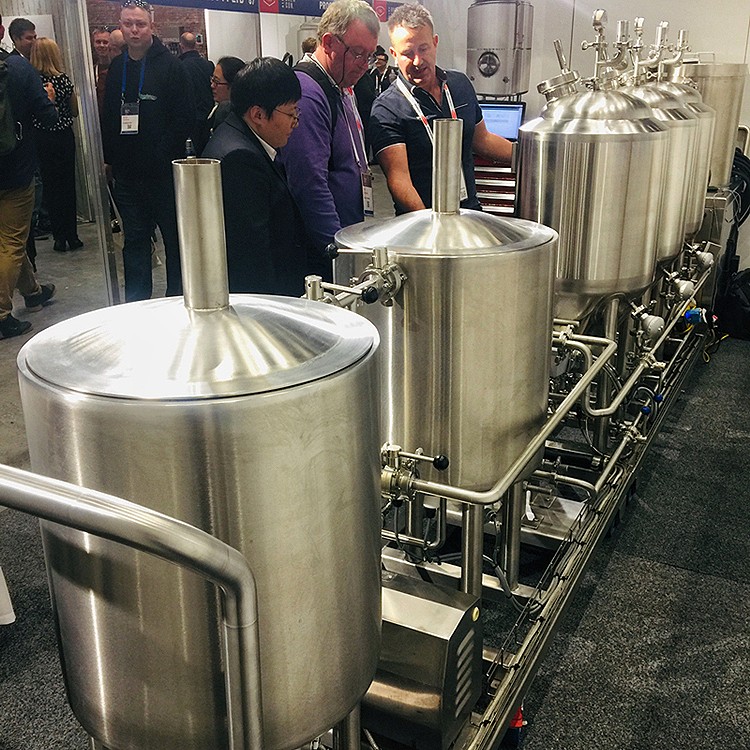
Marketplace home & living lifestyle home brewing d...
The home brewing and distilling market has grown in popularity in recent years, ...
More >>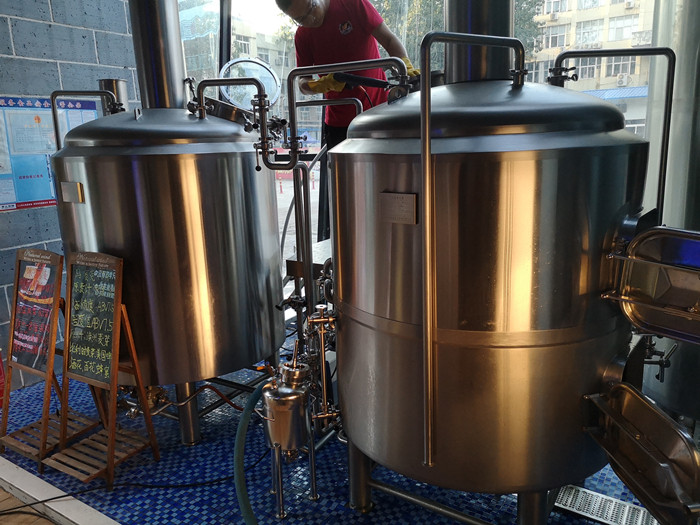
Beer brewhouse and fermentation tanks microbrewery
WEMAC-Main product categories:
Craft Beer equipment,Cider making machine,Beer b...
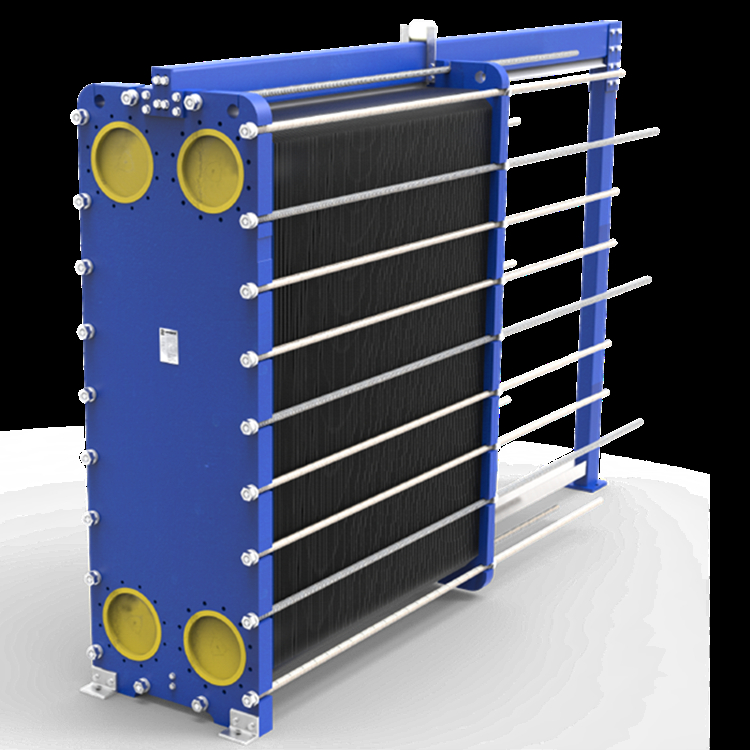
Best plate heat exchanger for beer brewery
The WEMAC plate heat exchanger (PHE) series is extensive, including multiple typ...
More >>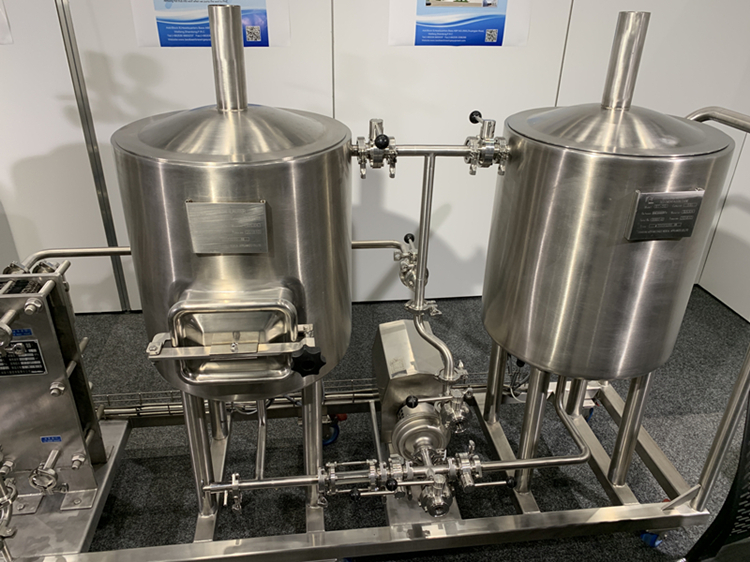
Home beer brew kits brewery equipment
This skid home brewing system is designed for craft brewing amateurs who has bee...
More >>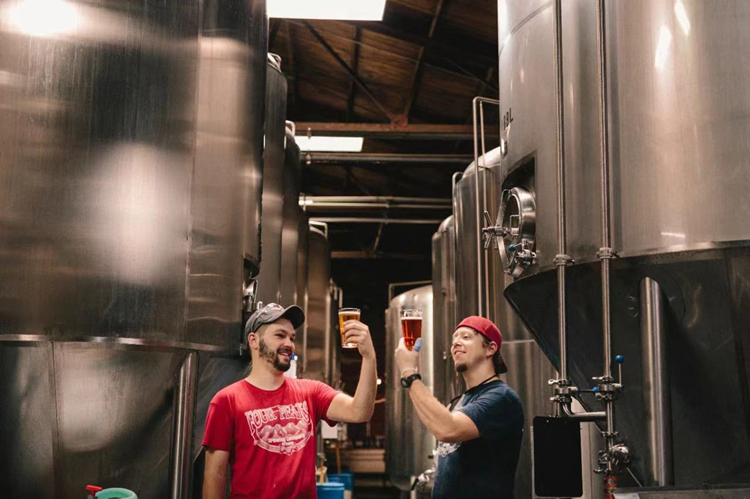
Top quality fermenter and beer bright tank
Brite or Bright Beer Tanks are also known as Beer Conditioning Tanks or Beer Ser...
More >>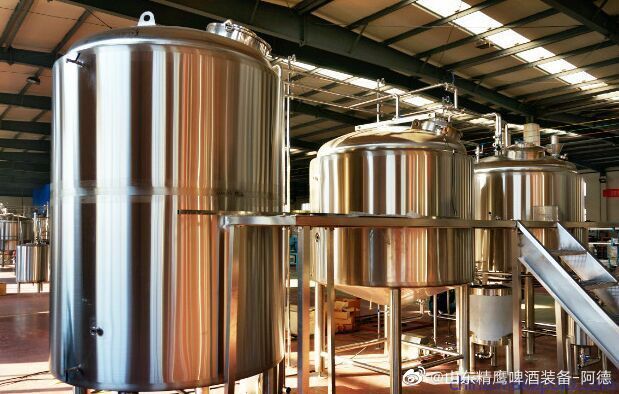
Pro two vessels 5BBL craft brewery in Michigan
Professional beer brewhouse sale well in Michigan state,turnkey brewery services...
More >>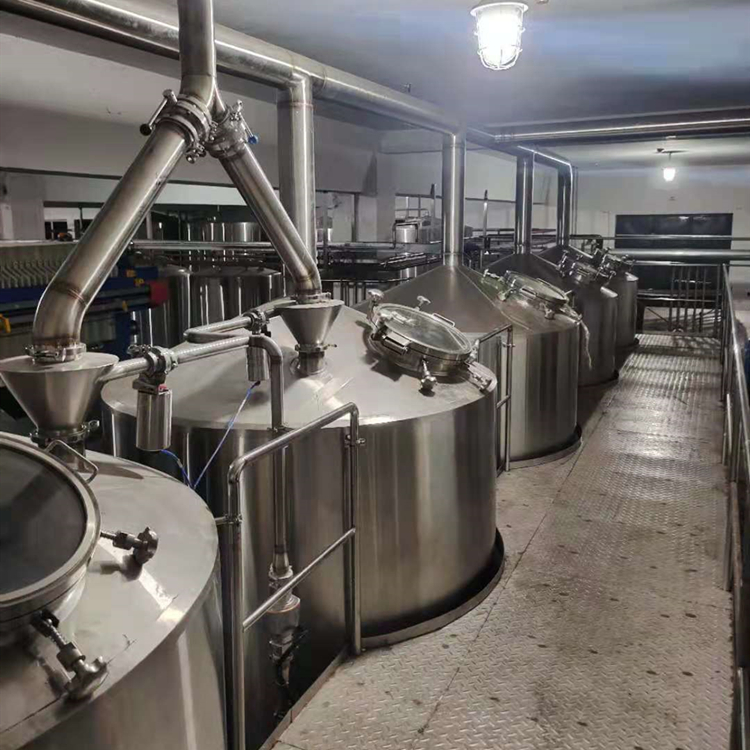
4000L Commercial Beer Brewery Equipment
4000L four vessels craft beer brewing brewery system,gas steam heating,with a be...
More >>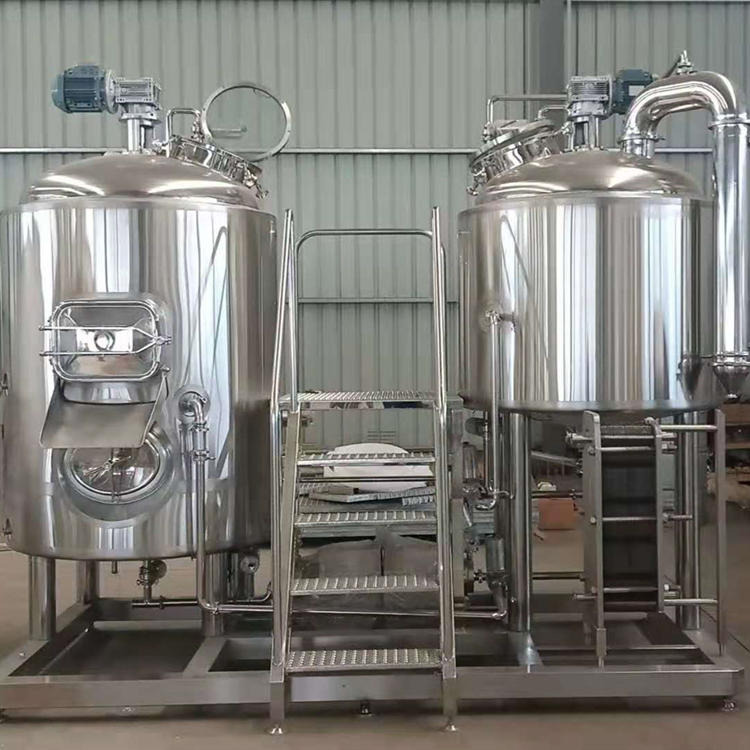
500L Top quality craft beer brewery equipment
Double vessels craft beer brewing brewhouse for sale,mash/kettle tun + lauter/wh...
More >>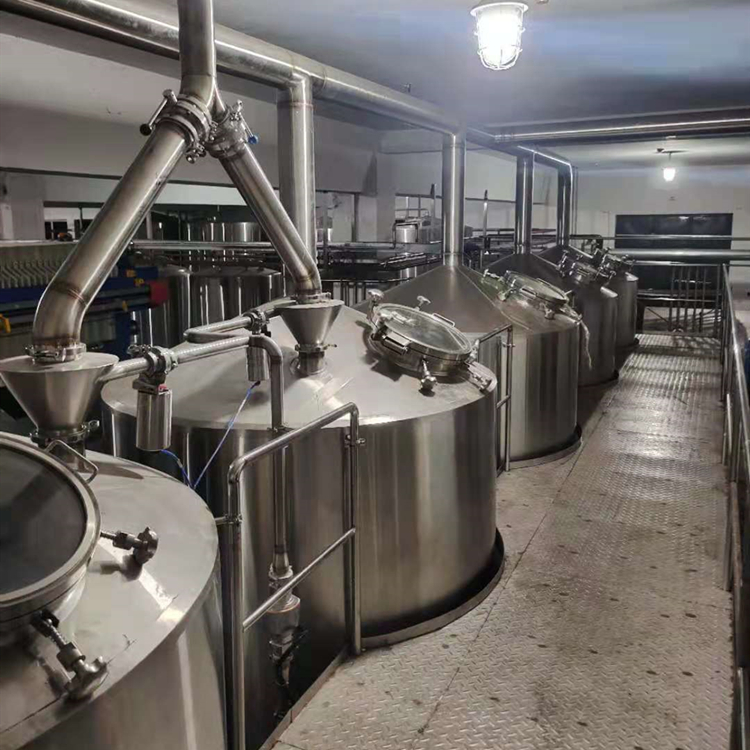
4000L Five vessels turnkey beer brewery
Five vessels craft beer brewhouse system suppliers,Double mash tun+double kettle...
More >>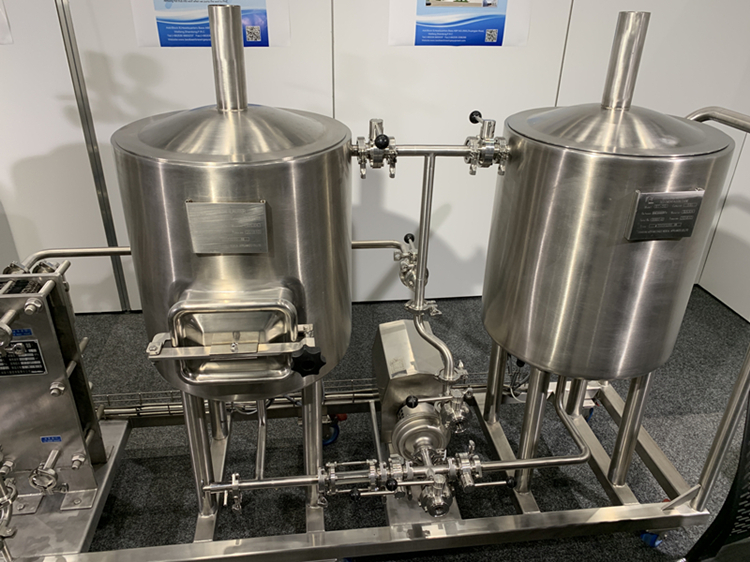
Best 50L home beer microbrewery equipment
Two vessels combination,mash/lauter tun+kettle/whirlpool tun brewery.electric co...
More >>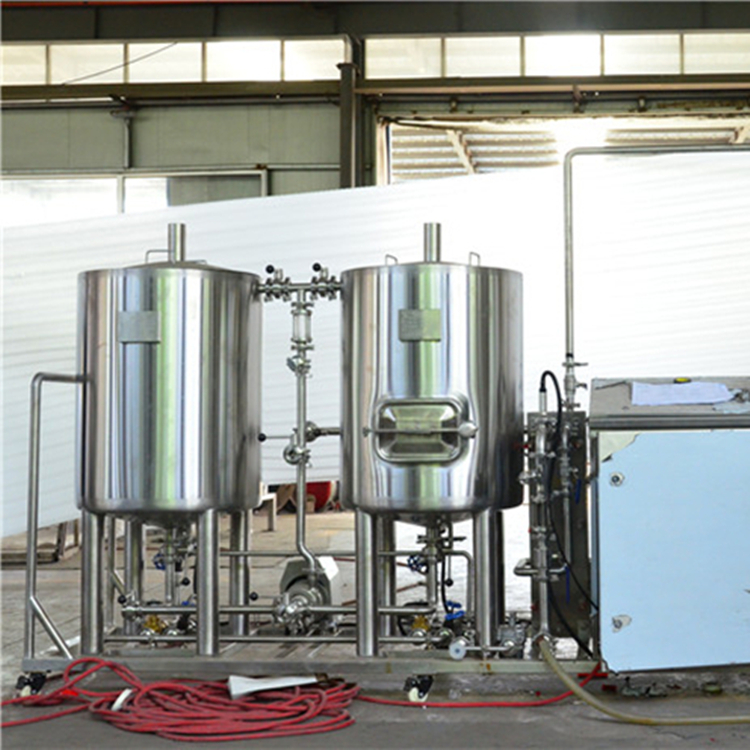
100L beer brewing home microbrewery
Mash/lauter/kettle tun+whirlpool tun,electric coil heating,two stages cooling,pl...
More >>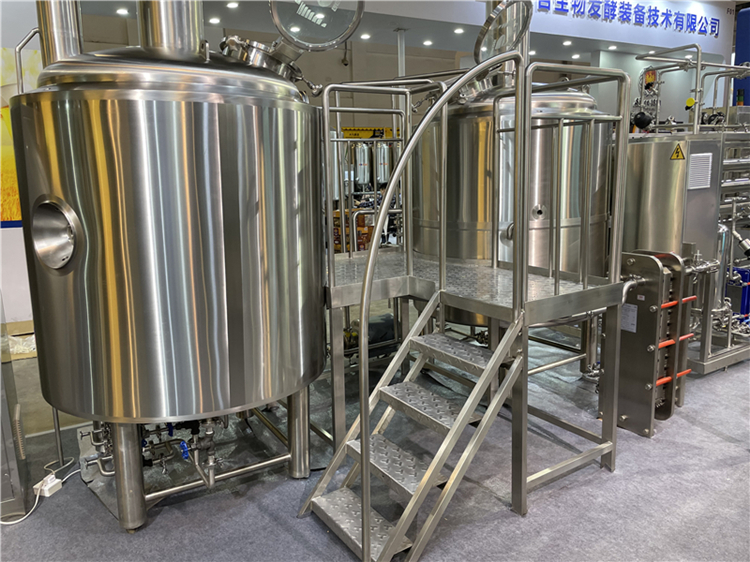
Build me a 1500L beer brewery
mini beer brewery machine from 50L,which is suitable to use in home and family b...
More >>